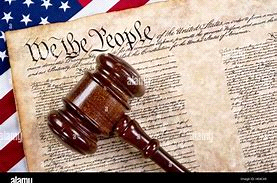
A right is a privilege granted by a governing judicial body which conveys permission for some action by the beneficiary of the right.
Rights relate to the action of individuals such as, first for white men, and then for all Americans, to vote. In the case of states and the federal government, there are rights to execute those found guilty of certain crimes.
There is a Bill of Rights, listing of rights in the Constitution, as written by elected leaders, and voted into law almost 300 years ago. Since then, there have been many right granting laws enacted by towns, cities, counties, states, and the federal government. Some of the right granting laws have expired or been replaced and others have remained valid and enforceable.
The commercial principles of our economy are based on property rights, originally based on those of England, and modified to meet the needs of our country and its property owners.
Both personal and property rights are in a state of constant change based on situations and circumstance.
We currently have both federal and state laws controlling our possession of weapons. We accept these laws because it has been decided by legislators and a majority of voters, and enacted into law, that they are best for society.
If compulsory national identification cards and possibly related personal tracking electronic equipment were to become law, albeit after fierce opposition based on privacy concerns, the law enforcement agencies of government would have additional tools to use for protecting the population.
Arthur Lipper arthurlipper@gmail.com
In addition, please let me know if you have any disagreement with the above, as posted on my blog arthurlipper.com/ on May 30, 2022, and if you disagree with the following observations:
The justification for any regulation is that adherence is in the public interest. It is in the public’s interest for citizens of the country to pay taxes, stop for red traffic lights, bear arms, incarcerate convicted law breakers, execute those convicted of certain crimes, elect legislators, and other government officials (not including Judges), be educated, receive healthcare, etc. Can we agree that these actions are both obligations and rights once laws are passed so mandating?
There are also government provided or arranged actions which though desirable only become rights once becoming required by a law, such as universal public availability of: electricity, fuels for the operation of vehicles and other equipment, family residences of minimum standards, drinking water, police and fire departments, Internet, postal service, and a range of financial services.
The question in many of the cases is “who pays the cost of the service?”. Does the urban resident agree to pay the additional cost for providing service to rural residents? Does the suburban resident wish to have their taxes increase due to the health and education requirements of those forced to live in urban slums? Do the younger citizens want to pay the cost of supporting older citizens? Do older citizens really care about the needs of the young, if financing those needs reduces the amounts paid for their benefit?
In popular democracies, where simple majorities are the determinatives, the aggregate voting power of those with less will overwhelm the votes of the more fortunate. The result will be increasing demands for government services and that ultimately becomes socialism.
Finally, recognizing the political issues and related matters of integrity and efficiency, are the undeniable benefits of unlimited freedom from other than legislated laws, the best means of population management, for the greatest good for the greatest number of citizens? As a 1951-54 USMC Sergeant, I know that an authoritarian military is more efficient than an undisciplined mob. I also believe that popular vote democracies are more effective in small population countries than in larger ones.
Therefore, I believe that it is in the public’s interest for there to be a surrender of some personal “rights” for the benefit of the nation.
